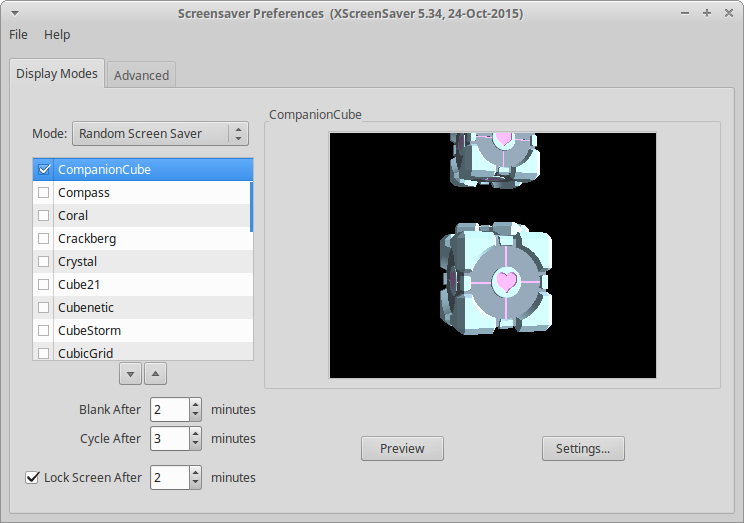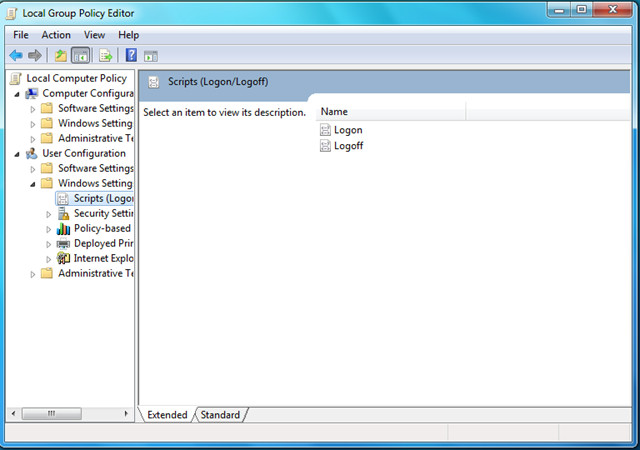
- #Configure xscreensaver logoff install#
- #Configure xscreensaver logoff manual#
- #Configure xscreensaver logoff full#
Starting from version 5.45, the xscreensaver-systemd utility implements the D-Bus ScreenSaver interface. Tips and tricks Disable during media playback You can try to call the SwitchToGreeter method using dbus-send, but it may not work properly. Note: If you use this to switch to an already-logged-in user, you might have to enter the password twice (once for LightDM, and once for the XScreenSaver dialog of the user you logged in to). You may want to set XScreenSaver's fade out time to 0. $ xss-lock -ignore-sleep - xscreensaver-command -lock Use the -ignore-sleep option because the suspend/hibernate events are already handled by xscreensaver-systemd. However, it does not handle other systemd signals such as loginctl lock-session. See xscreensaver-systemd(6) for more information It is started automatically with xscreensaver, no further action required. XScreenSaver ships with a small utility named xscreensaver-systemd, which handles the PrepareForSleep signal from systemd using D-Bus and automatically locks the screen on suspend and hibernate. To immediately trigger xscreensaver, if it is running, and lock the screen, execute the following command: See xscreensaver(1) § INSTALLING XSCREENSAVER ON KDE for more information.įor other environments, see Autostarting. Then logout and login again, and XScreenSaver should work properly now. ~/.config/systemd/user//nf ĮxecStart=/usr/bin/ksmserver -no-lockscreen To disable it, you need to enable systemd startup for KDE and then edit the rvice user unit: In KDE Plasma, screen saver and locker features are handled by ksmserver, which conflicts with XScreenSaver. In the Xfce, LXDE and LXQt environments, XScreenSaver is autostarted automatically if it is available - no further action is required.
#Configure xscreensaver logoff full#
See xscreensaver(1) for a full list of options. Tip: To start XScreenSaver without the splash screen, use the -no-splash switch. You can view a list of the available X resources in /usr/share/X11/app-defaults/XScreenSaver.ĭo not forget to reload the resource file after changes.

! You can use a comma-separated list of fonts to set a fallback font. If you are using a non-default theme, replace default with the name of your chosen theme in lower case, or use question mark ( ?) to affect all themes: The example below demonstrates changing some colors and fonts. You can customize themes using X resources. You can select a theme using xscreensaver-settings or by changing the dialogTheme option ( dialogTheme: themename in ~/.xscreensaver or using X resources: xscreensaver-auth.dialogTheme: themename). Starting from version 6.0, XScreenSaver comes with several pre-installed themes. Since at least XScreenSaver 5.22, there is another way to edit XScreenSaver's user configuration, using X resources. Global options are defined in /usr/share/X11/app-defaults/XScreenSaver.
#Configure xscreensaver logoff manual#
xscreensaver-settings writes the chosen configuration to ~/.xscreensaver, discarding any manual modifications to the file. Most options are configured on a user-by-user basis by running xscreensaver-settings.

#Configure xscreensaver logoff install#


 0 kommentar(er)
0 kommentar(er)
